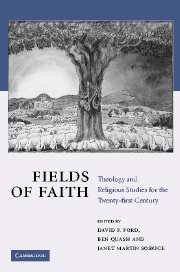7 - Scripture
Published online by Cambridge University Press: 22 September 2009
Summary
INTRODUCTION
Here is a scriptural text: from the biblical book of Nehemiah (8), part of the narrative of the return of Israel after the First Destruction, under the guidance of Ezra the Scribe:
Ezra came up from Babylon, a scribe expert in the Teaching of Moses …
(Ezra 7:6)On the first day of the seventh month, Ezra the priest brought the Teaching before the congregation … He read from it … to the men and women and those who could understand … Jeshua, Bani, … and the Levites explained the Teaching to the people … They read from the scroll of the Teaching of God, translating it and giving the sense; so they understood the reading.
(Neh. 8:2-7)And here is a Talmudic commentary on this biblical text, drawn from the first generations of rabbis who renewed the religion of Israel after the Second Destruction:
It has been taught: R. Yose said, Had Moses not preceded him, Ezra would have been worthy of receiving the Torah for Israel. Of Moses, it is written, ‘And Moses went up to God’ (Ex.19:3), and of Ezra it is written, ‘He, Ezra, went up from Babylon’ (Ez 7:6).
(Bab. Talmud, Tractate Sanhedrin)We may recall from the Exodus narrative that, enraged by the Israelites' sin of the golden calf, Moses broke the first tablets he brought down from Mount Sinai (Exod. 32:19).
- Type
- Chapter
- Information
- Fields of FaithTheology and Religious Studies for the Twenty-first Century, pp. 104 - 118Publisher: Cambridge University PressPrint publication year: 2005
- 2
- Cited by



